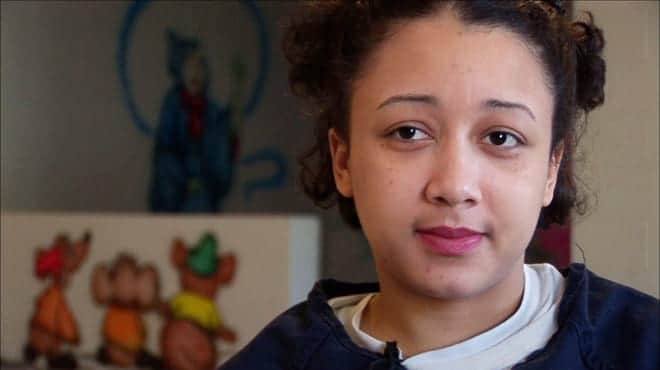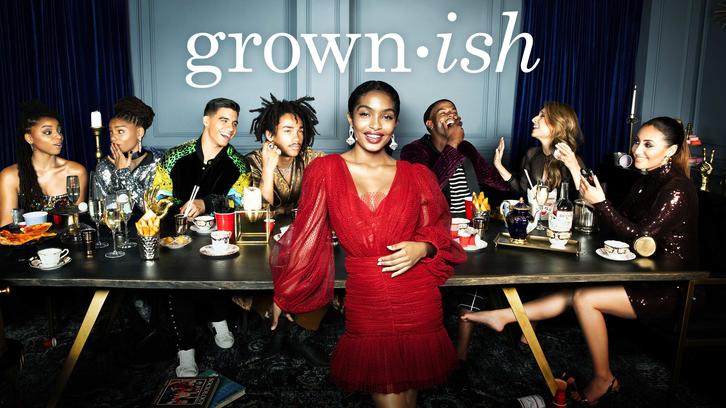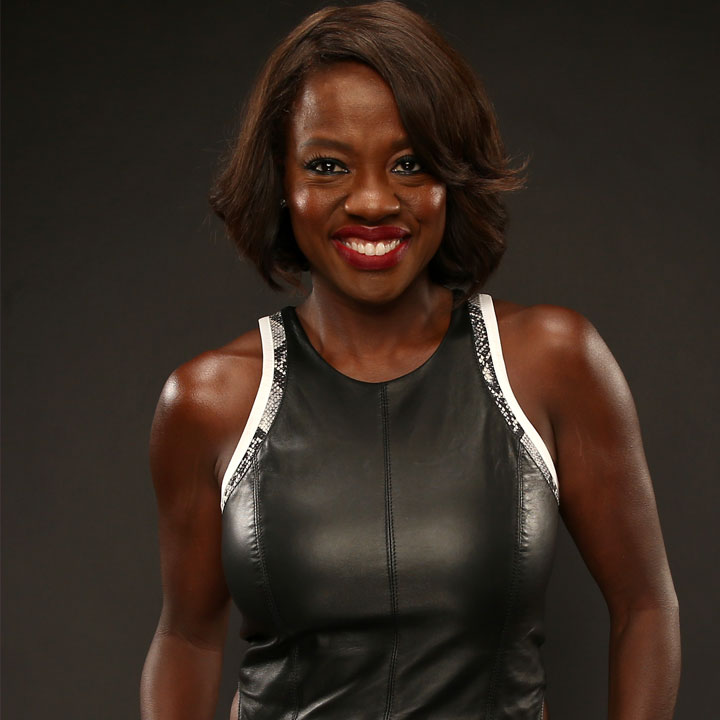For more than four decades, Davis has been one of most influential activists and intellectuals in the United States. An icon of the black liberation movement, Davis’s work around issues of gender, race, class and prisons has influenced critical thought and social movements across several generations. She is a leading advocate for prison abolition, a position informed by her own experience as a prisoner and fugitive on the FBI’s top 10 most wanted list more than 40 years ago. Once caught, she faced the death penalty in California. After being acquitted, she has spent her life fighting to change the criminal justice system. Just before the midterm elections, Angela Davis sat down with Amy Goodman in Washington, D.C., at Busboys and Poets to tell her life story.
Transcript
This is a rush transcript. Copy may not be in its final form.
AMY GOODMAN: Today, we spend the hour with the legendary activist and scholar Angela Davis, professor emerita at the University of California, Santa Cruz. For more than four decades, Davis has been one of the most influential activists and intellectuals in the United States, an icon of the black liberation movement. Angela Davis’s work around issues of gender, race, class and prisons has influenced critical thought and social movements across several generations. She’s a leading advocate for prison abolition, a position informed by her own experience as a prisoner and a fugitive on the FBI’s top 10 wanted list more than 40 years ago. Once caught, she faced the death penalty in California. After being acquitted on all charges, she spent her life fighting to change the criminal justice system.
I recently spoke to her in Washington, D.C., just before the midterm elections, at Busboys and Poets. I began by asking her about her connection to the late great soul singer Aretha Franklin.
AMY GOODMAN: The legendary activist and scholar, Dr. Angela Davis. We’ll return with her in a moment to talk about prison guards killing George Jackson in 1971 at San Quentin. We’ll also talk to her about the prison abolition movement and more.
AMY GOODMAN: The last time I got a chance to talk to you, Angela, we tracked you down your last morning—I’m sure you appreciated this—in Martha’s Vineyard. Right? It was in August. It was the day that Aretha Franklin died. So why were we looking for Angela? Because of their connection, that hardly gets attention today but, I think, says so much about both women.
And I wanted to read a quote of Aretha Franklin, who told Jet magazine in 1970, “My daddy says I don’t know what I’m doing. Well, I respect him, of course, but I’m going to stick by my beliefs. Angela Davis must go free. Black people will be free. I’ve been locked up (for disturbing the peace in Detroit) and I know you got to disturb the peace when you can’t get no peace. Jail is hell to be in. I’m going to see her free if there is any justice in our courts, not because I believe in communism, but because she’s a Black woman and she wants freedom for Black people. I have the money; I got it from Black people—they’ve made me financially able to have it—and I want to use it in ways that will help our people.”
What did that mean to you at the time, Aretha Franklin saying, “I want you free”?
ANGELA DAVIS: I was in jail at the time, of course. And when I learned about it, it was one of the most moving moments I experienced during that time, because, of course, Aretha had already provided the soundtrack of our lives, you know? And I was just, you know, so moved and so uplifted that she was willing to pay my bail.
But I should tell you, bail hadn’t been set at that time. It’s an interesting story. I was charged with three capital offenses, every single one of which was unbailable. And so, at that time, I had some arguments with people who were organizing, who wanted to do a bail movement. And I’m sitting in jail, and I said, “But I’m ineligible for bail. What’s the point?” But they proved me wrong. And people all over the world signed petitions. And then, eventually, interestingly enough, the state of California temporarily abolished the death penalty. And my lawyers tried their best to get in touch with Aretha, but she was in the Caribbean at the time.
AMY GOODMAN: The West Indies.
ANGELA DAVIS: And that was a different era. You’re used to money, capital, flowing with ease over national borders. There was no way that she could get the money to us in time. And so, this white farmer by the name of Roger McAfee, who had a farm in Central California, showed up at my lawyer’s office, and he said, “I’m willing to put up my farm.” And the thing is, had I not gotten out at that moment, I wouldn’t have gotten out on bail, because immediately the Supreme Court ruled that all capital offenses that were previously ineligible for bail would remain ineligible. And so there was this tiny window. And Aretha, by publicly announcing that she was going to pay my bail, made everybody listen. And so, I like to think that it was Aretha, you know, who bailed me out. And she did.
AMY GOODMAN: You know, we have a terrible problem in this country even with all of the media, with all of the channels: History gets erased so quickly. And I see so many young people here today, and I was wondering if you can tell that history, because each of the moments in your life were a political struggle, to say the least. I mean, we could—and we will—go back even further, to where you born, to Birmingham, but since we’re talking about this moment, 1969, Governor Ronald Reagan wants you thrown out of UCLA as a professor, as a teacher, because you’re a communist and he wants no communist voice there. Is that right?
ANGELA DAVIS: Yeah. And, you know, I never expected to be the center of attention in that way. I just wanted to teach philosophy. And probably, had anyone told me that I would be fired by Ronald Reagan and that this huge uproar all over the country about the fact that a communist was teaching at UCLA—I mean, I thought the McCarthy era was over, you know? Because there was a period where if you were a communist, you were not able to teach, you were not able to make movies. You all know about the McCarthy era, right? OK. I always say, even if you don’t have actual memory, you can have historical memory. So this should be a part of our historical memory. But yeah, Ronald Reagan. Oh, god.
You know, it’s so interesting that at these moments, when people like Ronald Reagan were elected, when people like Richard Nixon, we never expected that it could possibly be any worse. George W. Bush. I mean, the current occupant of 1600 Pennsylvania Avenue makes George Bush look a lot better than he looked at the time. And that’s weird.
AMY GOODMAN: But before we go there, 1970, you’re fighting, as you fight today, more than 40 years later, against the prison-industrial complex, to free the Soledad Brothers, and there’s a shootout in the Marin courthouse. And that’s what led to your charge, your charges. Today, Washington state’s Supreme Court overturned the death penalty in Washington state, making it the 20th state. But your experience—and I think a lot of young people may not realize this—comes out also of your own experience in jail, in prison. You faced three death penalties, three death sentences?
ANGELA DAVIS: Yeah. You know, Amy is a really good interviewer, you know? Yeah, 1969, I was fired from UCLA, and that was a pretty difficult year. I got literally hundreds of death threats. I had to be ushered from classroom to classroom by the UCLA campus police. They had to start my car up to make sure there wasn’t a bomb planted. And they ushered me to the edge of campus, because they wanted to guarantee that I was not killed on the campus. I mean, that was really their role. And I say this because it meant that I had to have security 24 hours. And I had to have someone move into my apartment with me, because I lived alone at that time. I had to have someone—I had to have armed security 24 hours a day. And I had—I purchased a couple of guns, that were used by the people who were doing security for me, you know, particularly when I was speaking.
I should say that around the same time, we learned about the case of the Soledad Brothers—George Jackson, John Clutchette, Fleeta Drumgo—and began to do organizing in Southern California. There was a committee in Northern California to free the Soledad Brothers. We created a committee in Southern California. And George’s younger brother Jonathan, who was an amazing, really beautiful young man who was an incredible writer, wrote—he wrote poetry. He was also deeply dedicated to his brother. And I give you all of this information because at one point Jonathan, who had been doing security for me, took those guns that I had bought for my security, and went into the Marin County courthouse.
And we’re still not exactly certain what the plans were, but it seemed that he was going to call for the freedom of his brother and the Soledad Brothers. George was in San Quentin at the time. They had been moved to San Quentin. And there was a trial happening in the Marin County courthouse that involved a number of San Quentin prisoners. Jonathan went into the courtroom and brought the judge out with some of the jurors into a waiting van. And then, as we discovered during my trial, it was the San Quentin guards who opened fire, who were responsible for the death of the judge and the other prisoners and Jonathan. And it was horrendous. It was really horrendous.
I can remember, we examined some of the San Quentin guards during my trial and asked what their policy was with respect to escapes. And they said their policy was to prevent escapes at all cost. And so, we said, “Well, if it means the death of one person or 20 persons, does that still hold true?” And he said, “Yes.” If it meant the death of one child or 20 children? He said, “Yes.” So, anyway, I was charged with murder, kidnapping and conspiracy because the guns were registered in my name. And—
AMY GOODMAN: You had a major decision to make at that time, and you decided to go underground.
ANGELA DAVIS: Well, I wasn’t going to turn myself in. You know? I mean, we all—we were all very much aware of what had happened to Lil’ Bobby Hutton, an 18-year-old member of the Black Panther Party, when he tried to surrender to police and was killed. And it was really interesting, an interview—or, rather, a study was done, a poll was taken, of people in Los Angeles in black communities. And the question was whether they thought that I was doing the right thing by leaving. And it was like 90 percent said yes, because they knew the Los Angeles Police Department, and they knew how many people had been killed by the police department. So, you know, it never even crossed my mind to turn myself in at that time. I was thinking that, you know, maybe in a more auspicious moment, you know, maybe if organizing were done and—I mean, I didn’t get to do that, because the FBI caught up with me, and I was actually captured by the FBI, which was another story, but—
AMY GOODMAN: In New York.
ANGELA DAVIS: Yeah, I was in New York. Well, I was actually running from the FBI, because—you know, people have this romantic idea about what it means to be underground. But, you know, in a sense, I was almost relieved, because every time I saw a white man in a suit, I assumed it was the FBI. And if I had stayed underground any longer, I probably would have had a heart attack, so…
AMY GOODMAN: It’s almost exactly 48 years ago, 1970—it was October—that you—that they got you—right?—and put you at Bedford women’s prison—is that right?—one of the places you were held downtown in the Village of New York City?
ANGELA DAVIS: Yeah, it was the Women’s House of Detention in Greenwich Village, yeah. Yeah, they took me—first they took me to the FBI’s office. I mean, they—well, I’m having to go back in my memory 48 years. And I remember being on the elevator and knowing that they had found us. I was traveling with a man by the—who was actually really amazing. And he ended up being arrested—David Poindexter. And he finally beat the case. But I remember—we were going up to the hotel room, and I remember thinking that this is it. I could sense that it was going to happen. And as soon as we got up to the floor, they grabbed me, they grabbed him. They snatched—I had a wig, because I was in disguise. They snatched my wig off. And—only time I’ve ever worn a wig in my life! And my brother saw—my brother saw a picture or something, and he said, “That’s not my sister.”
But they kept asking me, “Are you Angela Davis?” And, you know, I learned when I was a very young child not to talk to the FBI. You do not say anything to the FBI. I learned when I was 5 years old, when my parents’ friends, who were communists, were underground, and the FBI would always try to get information from us. And I’d learn not to say a word to the FBI. So, the only thing I did say to them, eventually, was that I want my phone call. But yeah, yeah, that was a pretty dramatic moment. Yeah.
AMY GOODMAN: So you’re sitting in jail. They are going to fight for you to be extradited to California. You were fighting that, and then they just put you in a van and started moving you west?
ANGELA DAVIS: Well, I was in jail for—let’s see. I was arrested on October 13th, and I was in jail until November. So there are lots of stories that happened at the Women’s House of Detention. They’re really important stories, because I think I learned there. It was the only time I was ever in general population, because my lawyers fought for me to be removed from solitary confinement, so I did have contact with the women there. We did do—as a matter of fact, we did organizing around bail. And it’s so interesting that 50 years later, 50 years later, that remains the issue.
And so, there were people on the outside, and it was great that the jail was in Greenwich Village, because people could just gather outside, and you could talk to them out of the windows. And so—and I mention this in my autobiography, that when I was in high school, I went to high school in Greenwich Village, and I remember going—walking by that jail and hearing the disembodied voices and not really knowing how to respond. And then, it turns out, later, I’m the disembodied voices calling out to people to contact an attorney or—we did a lot of organizing in that way. And we were able to organize the women inside so that there would be collective decisions regarding who got out on bail after the money was raised by people in the community. It was really quite an amazing experience. I learned a lot from—the more I think about it, the more I realize how that experience really shaped me.
You know, later, I started to do yoga in jail. I had never heard of yoga. I mean, there weren’t even any yoga mats at that time. There was no such thing as the yoga industry. But I developed a yoga practice when I was there. I learned—I learned a lot from the women. I learned about the need for self-care. And, yeah.
AMY GOODMAN: Vegetarianism?
ANGELA DAVIS: Oh, yeah, I became a vegetarian. Not because I wanted to at the time. I’m sorry. I mean, I’m still—I’m vegan now, so this is a conscious decision. That was not a conscious decision. That was because the meat had maggots in it and was so bad that I told them I did not eat meat. And I had no idea that once I got out and I tried to go back to eating meat, it wasn’t going to work, so… And then, eventually, of course, I learned about all of the reasons why we should be engaging in conscious eating and not be participating in the inflicting of violence on—you know, for the sole purpose of producing profit.
AMY GOODMAN: The legendary activist and scholar, Dr. Angela Davis. We’ll return with her in a moment to talk about prison guards killing George Jackson in 1971 at San Quentin. We’ll also talk to her about the prison abolition movement and mor































